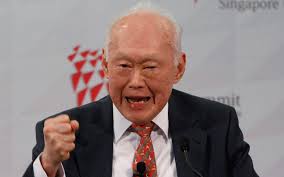Leaders should be concerned with strategy, not operational execution.
If the organisation is set up so that colleagues understand what they need to do, and are driven by their customers, colleagues can themselves agree how best to achieve that aim, profitably, and leaders can spend their time on more far-reaching issues.
‘Who sits in the CEO’s chair is of less and less importance’
Zhang Ruimin, CEO of China’s home appliance manufacturer, Haier Group, radically reorganised the company, creating over four thousand self-managed business units, each devoted to a customer – a retailer or group of retailers. The units are assessed as individual businesses. The managers’ job is to make sure the unit has what it needs. Key decisions are made by the people working directly with customers. If units exceed their profit target, the surplus is paid as bonus.
Zhang is attempting to move the company to a position where the CEO has little or no involvement in operational execution.
‘My larger hope is that the question of who sits in the CEO’s chair is of less and less importance,’ Zhang told Harvard Business Review.
‘Haier should not be a company ruled by one man or woman but, rather, a self-sustaining system of excellent managerial processes . . . Today, the biggest problem at Haier lies in the fact that its leaders are still embroiled in operational execution issues. The enterprise will become great when it is able to operate by itself, with employees acting as their own leaders, understanding what to do to satisfy market and customer demand. The future CEO of Haier will then be able to focus wholly on strategic issues.’
‘Everyone’s a manager here’
Chris Rufer, founder of tomato processing company, Morning Star, set the company up with a structure of self-management. Every employee undertakes a mission to deliver a certain function, and is responsible to colleagues not only for delivery but also for acquiring whatever resources they need in order to able to deliver, including capital equipment – anyone can issue a purchase order.
‘Understanding the mission is critical,’ Rufer told Gary Hamel, management thinker and author of What Matters Now. ‘A feedback system that lets you know how you’re doing is also key . . . you are ultimately responsible for the accomplishment of your mission, and for acquiring the training, resources and cooperation with colleagues that you need to fulfil your mission.’
‘Everyone’s a manager here,’ says Rufer. ‘We are manager rich. The job of managing includes planning, organising, directing, staffing, and control, and everyone at Morning Star is expected to do all these things. Everyone is manager of their own mission, they are a manager of the resources they need to get the job done, and they are managers who can hold their colleagues accountable.’
Successful leaders should create a structure where everyone understands and signs up to delivering their own ‘mission’.
Leaders who let the organisation manage itself in this way can then focus on strategy, not execution.
Further reading




